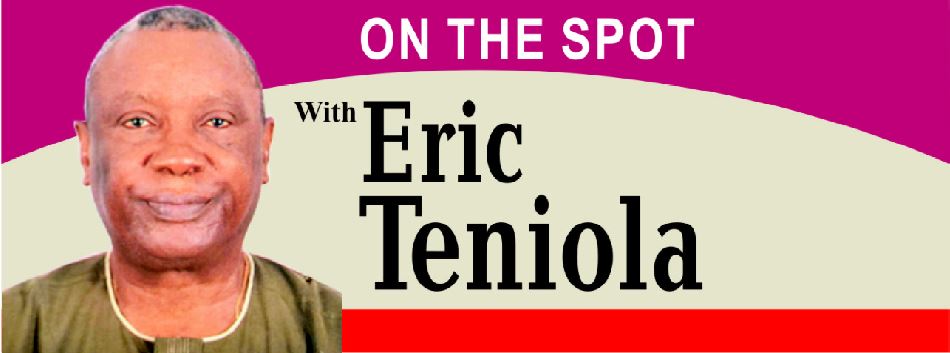ABRACADABRA is now commonly used as an incantation in the performance of magic. Literally it is used as the more you look, the less you know or see. Abracadabra is the best word to describe what is going on in Port Harcourt Refinery. The refinery is situated at Alesa Eleme, which is 19 kilometres from Port Harcourt city. I have visited the refinery thrice. Twice I accompanied my two bosses, Alhaji Gidado Idris and Chief Ufot Ekaette, both late Secretaries to the Government of the Federation. My last visit to the refinery was three years ago with a friend who once worked in the refinery. One needs to see the refinery.
The scandal in Port Harcourt Refinery is so deep that it can’t be uncovered by the most competent spy master in the world.
The Port Harcourt Refining Company, PHRC, is a Nigeria-based oil and gas company primarily specialising in the refining of crude oil into petroleum products. The company is a subsidiary of the Nigerian National Petroleum Corporation, NNPC.
The latest news about Port Harcourt Refinery is that the Federal Government has approved $1.5 billion for its rehabilitation. The Minister of State for Petroleum, Timipre Sylva, who briefed reporters after the FEC meeting said the rehabilitation will be done in three phases of 18, 24 and 44 months. He said the contract was awarded to an Italian company, Tecnimont SPA, who, according to the minister, are experts in refinery maintenance.
Sylva said the funding of the repairs will be from many components, including the Nigerian National Petroleum Corporation, NNPC, Internally Generated Revenue, IGR; budgetary provisions and Afreximbank. “The Ministry of Petroleum Resources presented a memo on the rehabilitation of Port Harcourt refinery for the sum of $1.5 billion, and that memo was $1.5 billion and it was approved by council today.
“So, we are happy to announce that the rehabilitation of productivity refinery will commence in three phases. The first phase is to be completed in 18 months, which will take the refinery to a production of 90 percent of its nameplate capacity. The second phase is to be completed in 24 months and all the final stage will be completed in 44 months and consultations are approved. And I believe that this is good news for Nigeria.”
To many, it is not good news. They call it capital flight. Only Italy will benefit while Nigeria becomes poorer.
The approval, therefore, confirms a January 7 report by Reuters this year that Nigeria’s state oil firm NNPC is in talks to raise around $1 billion in a prepayment with trading firms to refurbish its largest refining complex at Port Harcourt. According to the report, the money would be repaid over seven years through deliveries of Nigerian crude and products from the refinery once the refurbishment is complete, the sources said.
Cairo-based Afreximbank is leading the financing. “Afreximbank is looking into a facility for the refurbishment of the Port Harcourt Refinery. However, the borrower is yet to be determined,” a spokesman for the bank said.
On July 27, 2017, the former Minister of State for Petroleum, Dr. Emmanuel Ibe Kachikwu, promised to end fuel importation by 2019, or he would resign from his position. He never resigned and fuel importation did not stop until he was dropped by President Muhammadu Buhari in his second term.
Nigeria has spent over $1.6 billion on the turn-around maintenance of the country’s four refineries without any sign of improvement since 2000. Nigeria is the fifth largest exporter of crude oil in the world, but spends over $16 million per day importing refined petroleum products. This situation has been attributed to the poor refining capacity of the country.
The total utilisation capacity of the refineries was estimated at below 40 er cent of the total installed refining capacity, making them the worst performing refineries in Africa. Dr. Ibe Kachikwu confirmed the poor conditions of the plants during an oil and gas stakeholders’ meeting in Abuja on Tuesday, July 18, 2017. “Our refineries have not been maintained at the same levels that other nearby countries have continued to do theirs. Look at Ghana and Ivory Coast, the same refineries, about the same ages and working at over 90 per cent capacity,” he said.
On November 22, 2019, the House of Representative ordered an investigation into the financial allocations set aside for ‘Turn-Around Maintenance’ of the petroleum refineries in Port Harcourt, Warri and Kaduna, estimated to have cost $396.33 million in four years. The inquiry was initiated following the motion titled: “Call for investigation of the $396.33 million allegedly spent in four years on turn around maintenance of the nation’s three refineries.”At the plenary session, Ifeanyi Momah, representing Ihiala federal constituency of Anambra State called for the inquiry, alleging that the amount spent on maintenance of the facilities had not yielded the desired results.
The House also called on the Federal Government to consider “divesting a certain percentage of its shareholding in the Port Harcourt, Warri and Kaduna refineries to competent investors under a transparent and fair bidding process.”
Also, the House mandated the Committee on Petroleum Resources (Downstream) to conduct an investigative hearing into the maintenance expenses made from 2015 to date while the committee was to submit its findings within eight weeks. Till today, report of the so-called investigation by the House of Representatives has not surfaced.
Let us take a brief look on the three refineries that we have. The first, Port Harcourt Refinery was built in 1965 under the then Prime Minister, Alhaji Abubakar Tafawa Balewa (1912-1966). It was commissioned, operated and managed by Shell BP. The capacity was 35,000 barrel per day. However, ownership passed to the Central Government in 1970 under General Yakubu Gowon (85).


Comments
Post a Comment